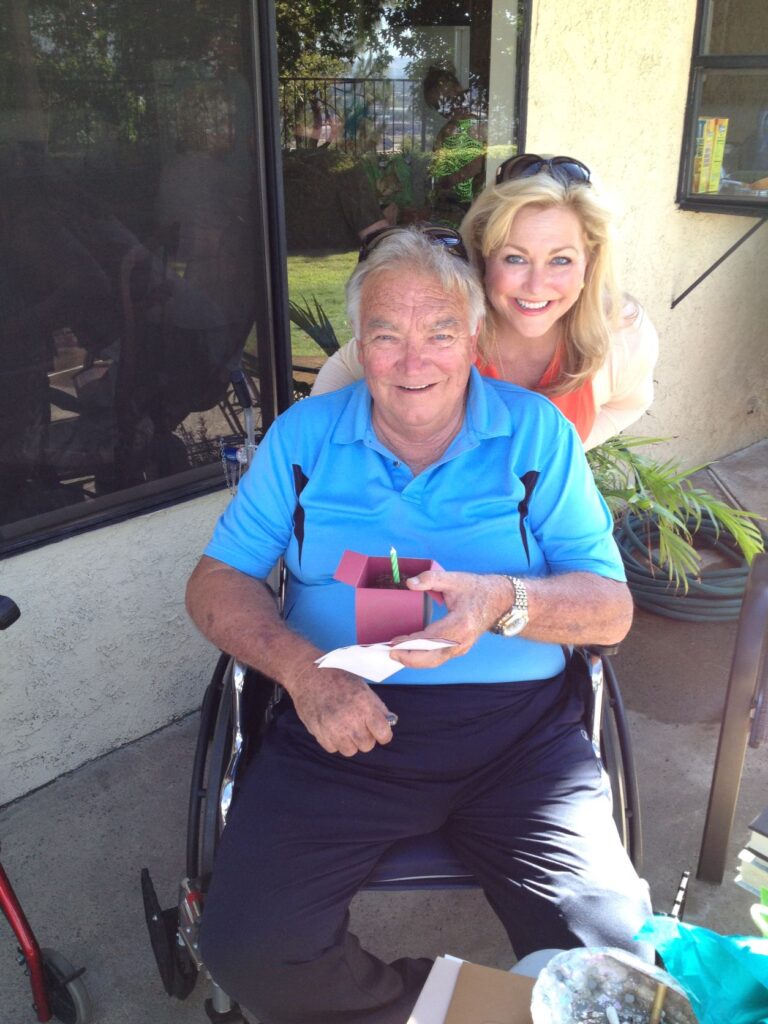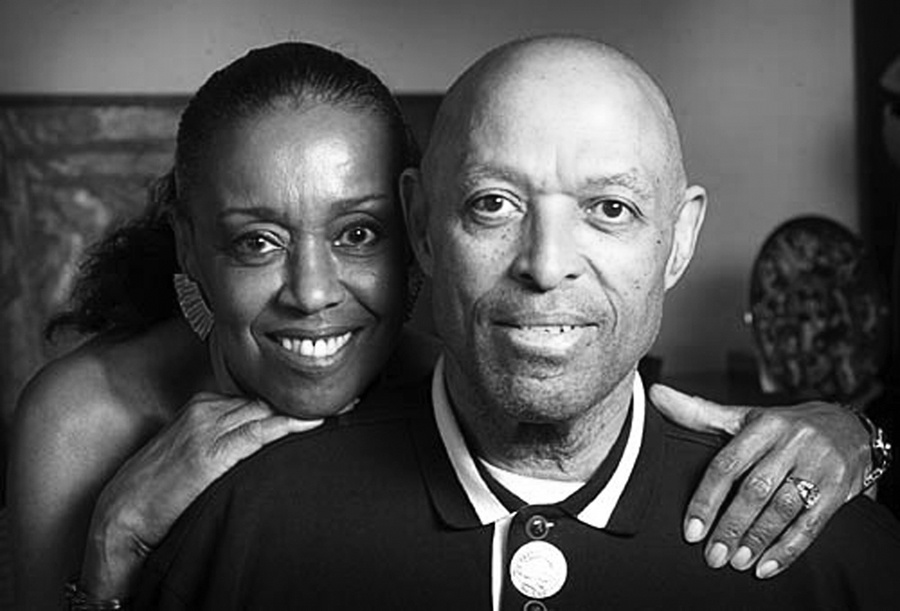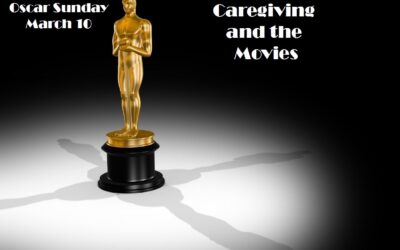Last June when the family of actor Bruce Willis announced his retirement from making movies, he was thought to be suffering from aphasia, a language disorder (see more below). After many months of tests and additional symptoms, his family recently updated the world on his condition that Willis has frontotemporal dementia (FTD), a type of dementia that affects approximately 60,000 Americans (see the family’s statement). FTD represents 10-20% of dementia cases (Alzheimer’s is the most common dementia representing 70% of all cases) and effects the parts of the brain that control “executive functions” such as decision-making, personality, social behavior and language.
As with all dementias, including Alzheimer’s, there is currently no way to stop or slow the progression of the disease and there is no cure. At age 67 Willis is in the age range when most develop symptoms and are diagnosed the disease which is typically between ages 45-65. While many people can live up to 20 years after diagnosis, the average life expectancy is 8-10 years.
The road ahead for Willis and his family will have its challenges. The star of the “Die Hard” movie franchise, as well as the “Red” movies, “Armageddon,” “The Sixth Sense,” and one of my favorite 80s TV shows, “Moonlighting,” left his mark on the entertainment industry with this wise-cracking tough guy heroes. Below I share my blog post from last summer when Willis first announced this health struggles. I wish his family the best of the time they have with Willis, who was a friend of my late father.
I also have a link to another superhero who suffered from FTD – NFL Super Bowl Hall of Famer, John Mackey of the Baltimore Colts. I interviewed his wife, Sylvia, for my book, A Cast of Caregivers, as well as for PBS Next Avenue. You can read more of their love story below.
Blog post from 2022 . . .
A recent celebrity announcement has me thinking of my late dad this Father’s Day. When the family of Bruce Willis announced earlier this year that he has aphasia, my heart went out to his wife and daughters. Before my dad passed away, he pivoted from being a Formula One racer to running an exclusive driving school where many of his clients were Hollywood celebrities and their children. Bruce had called my dad to set up sessions for his three daughters, Rumer, Scout and Tallulah as well as his ex-wife, Demi Moore, and her current husband, Ashton Kutcher (this was before Bruce married his second wife, Emma, and had two more daughters).
I remember my Dad telling me Bruce was “the real deal.” He and my Dad shared a similar sense of humor and loved playful fun. They were both charming, sweet rascals. They talked about being men of action with a daredevil attitude – my Dad the race car driver going more than 225 miles an hour and Bruce the action star who did many of his own stunts. My Dad was never a great communicator, he was more the strong silent type. But if he were still here, he would be sad to know that the Bruce he knew now struggles with language and communicating.
What is Aphasia?
A recent study by National Aphasia Association showed 9 in 10 people don’t understand what constitutes or are warning signs of aphasia. Aphasia is a language disorder that impacts speech, communication and a person’s ability to read or write, often called expressive or motor aphasia. People with aphasia can also struggle to find the right word or use unrecognizable words and lack understanding of standard reading and communication, called sensory or receptive aphasia, and therefore they often talk in very short sentences.
More than 40% of all aphasia cases are caused by a stroke from a clot to the brain or a cerebral bleed known as an aneurysm. Other causes of aphasia can be an injury to the brain known as traumatic brain injury (TBI) caused by an auto, motorcycle or bicycle accident, blunt force or a sports injury impacting the head. It can also be caused by a brain tumor or brain infection.
The way to determine if the language problems are aphasia is through either a blood test or a brain scan. Once diagnosed, surgery can remove a tumor or clear infection and speech therapy can help stroke victims regain communication skills.
Is Aphasia a Type of Dementia?
Since the news of Bruce Willis, some have wondered if aphasia is a type of dementia. While it is more typically a result of the health issues listed above, there is a type of dementia that includes language issues and signs of aphasia. It is called PPA, Primary Aggressive Aphasia, a rare nervous system (neurological) syndrome that affects the ability to communicate. People who have it can have trouble expressing their thoughts and understanding or finding words similar to the injuries and infections noted above. However, while injury or infection-based aphasia will appear immediately after a crisis event, PPA symptoms begin gradually, often before age 65, and worsen over time.
PPA is a type of frontotemporal dementia, a cluster of related disorders that results from the degeneration of the frontal or temporal lobes of the brain, which include brain tissue involved in speech and language. How PPA is different from Alzheimer’s is that with Alzheimer’s MEMORY is affected first while with primary progressive aphasia LANGUAGE is affected first.
For family caregivers of someone with aphasia, what can help is to have notecards or a notepad your loved one can write things down or draw pictures to explain what they want to say. Also, similar to communicating with those in mid to late stage Alzheimer’s, family caregivers should try to communicate by asking close-ended questions where your loved one can answer “Yes” or “No.”
June is National Alzheimer’s and Brain Health Awareness Month
The aphasia that Bruce Willis has been diagnosed with seems to be injury related perhaps from the stunts he has performed in his almost 40-year acting career although no statement has been made to the origins of this disease. In the same way the late President Ronald Reagan’s news of Alzheimer’s almost 30 years ago brought worldwide attention to that disease at a time it was not well understood, it appears Willis will play a similar role in getting more people to pay attention to not just aphasia but to brain health and a better understanding of all the issues affecting our cognitive functioning and ability to communicate.
The Language of Dads

As I noted above, my Dad had not been the best communicator, at least with me, his oldest child. Part of this could be that my parents divorced when I was only six years old and my Dad pursued his love of racing while my Mom and wonderful Stepdad raised me and my brother. But the last three years of my Dad’s life, we grew close and had many amazing conversations. It was part of the silver lining I talk about that can help caregivers heal old wounds and cope with loss.
Studies have shown more fathers than mothers are willing to talk to their adult children about long-term care wishes and plans. They are also more likely to move in with an adult daughter or son if divorced or widowed whereas 47% of women age 75 live alone.
When it comes to caring for our dads, language matters. Many fathers don’t want to call for help or want to bring a “caregiver” into the home. They tend to reject that terminology because it makes them feel more vulnerable and lacking control over their situation. What can help is to call the home health aide or home care worker an “assistant” to help them out. This takes away the frailty and puts dad back in charge.
This Father’s Day – spend some quality time talking to your dad or grandad. You never know when communication may be lost.
A Gridiron Star Grapples with Dementia

John Mackey, who wore his famous number “88” jersey during his NFL career (played mostly with the Baltimore Colts), began acting strangely according to this wife, Sylvia. Eventually John was diagnosed with FTD leaving Sylvia to care for her husband with a disease that was hard to understand. Some of Sylvia’s stories that she shared with me for my book, A Cast of Caregivers, were hilarious (read about the NFL “pilot program” with adult diapers). But what could have been seen as tragic became inspiring as Sylvia became the advocate and warrior working with the NFL to create “The 88 Plan” in John’s honor, a long-term care support program for retired players. When John was catching passes in the end zone during his heydey of the ’60s and early ’70s the players did not make million dollar contracts. A diagnosis such as FTD could wipe out a former player’s savings in just one year which is why the 88 Plan became a lifeline for players suffering from neurocognitive issues.
You can read an excerpt of Sylvia and John’s story here on PBS Next Avenue.
You can also read my PBS Next Avenue interview with actress Kimberly Williams Paisley on her book, Where the Light Gets In which chronicles her mother’s journey with PPA and dementia: Kimberly Williams Paisley Chronicles Her Mother’s Dementia





0 Comments